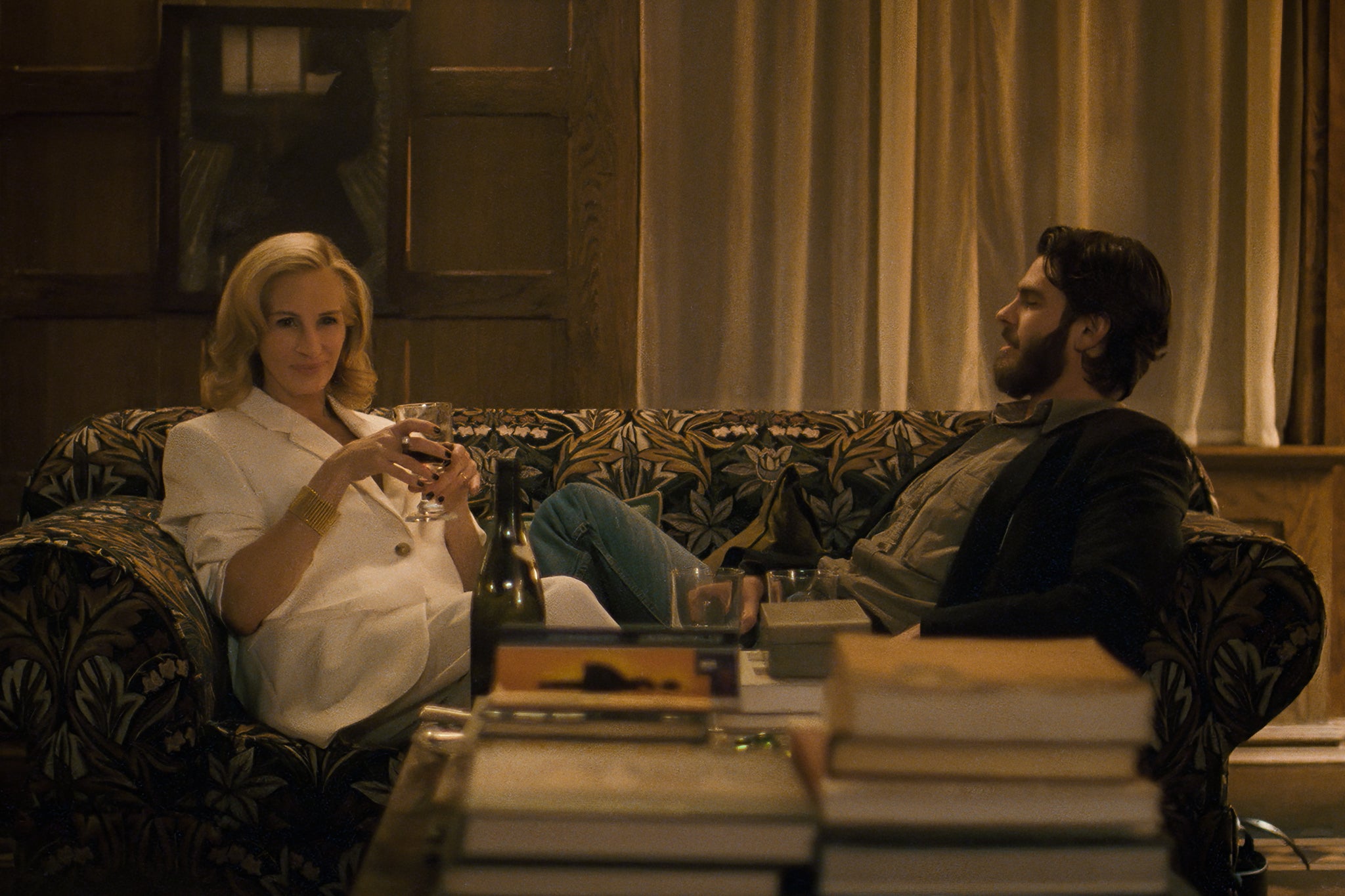Luca Guadagnino has always rolled around in the mess of life, amongst the egomaniacs, the adulterers, and the cannibals, from Call Me by Your Name (2017) to Challengers (2024). I can see the appeal of After the Hunt’s script, then, provided by debut screenwriter Nora Garrett, which places Yale philosophy professor Alma (Julia Roberts) at the centre of a sexual assault accusation. She’s a mentor to the victim Maggie (Ayo Edebiri), a friend to the aggressor Hank (Andrew Garfield). A lifetime dedicated to refining the ethical rules of our existence immediately falls apart in the face of slippery, human emotion.
There are certainly moments in After the Hunt that bristle with true Guadagnino provocation: he opens the piece with the sly roll of jazz and titles written in Windsor Light Condensed, both trademarks of Woody Allen, a figure whose work has been cyclically evaluated and reevaluated under the revealing light of the #MeToo movement. As Yale’s dean openly confesses, “I’ve found myself in the business of optics, not substance”, and the film is at its best when it explores the dissonance between people wanting to do what is right, what is best for themselves, and what appears “correct” to the outside world. There’s a sickly air that descends when Maggie is excitedly contacted by a journalist with the news, “we might get picked up by The Times!” Who really benefits there?
When Maggie comes to Alma the night after a dinner party, to tell her that Hank, while walking her home, “crossed a line”, Alma doesn’t respond in the way her student wants and needs her to. Instead, she stiffens. The chain link fence she excuses as professional boundaries, despite Maggie having been in her home and drinking her wine 24 hours ago, suddenly rises up. Alma moves like she’s sensed a trap. “Why me?” she demands, as the maelstrom of Atticus Ross and Trent Reznor’s score roars.
Alma is of a pioneering generation, someone who fought tooth and nail for her place (and is still fighting, since both her and Hank are up for tenure). She views her empowerment at the cost of her identity, her femininity, and her self. Imperviousness is survival. As her colleague and friend Kim (Chloë Sevigny) despairs, “Whatever happened to stuffing everything down and developing a crippling dependency habit in your thirties?”
Guadagnino has weaponised his actors. Roberts’s classic grin has been wiped from her face. Only ice and cool blonde hair remain, her mouth so tautly pulled shut that when she finally explodes in the face of an unsuspecting student (Thaddea Graham), for daring to place the literary concept of the “other” on a supposed “socio-political binary”, it’s really quite frightening (and more layered and revealing, I’d argue, than the similar inter-generational classroom clash Cate Blanchett has in the recent Tár). There’s an effective menacing, too, of Garfield’s earnest image.

Edebiri’s Maggie would seem like another inversion of the actor’s own breezy, unbothered confidence (if the internet wants to start calling her Irish then, sure, why not). But the contrast isn’t as smooth and Edebiri seems somewhat ill fit for the role. Maggie is meant to be someone with an unstable sense of identity. She’s a young, Black, queer woman whose parents also happened to donate half the campus. How much power, exactly, does she wield in this situation?
It’s exactly the sort of messy business Guadagnino should delight in, but Garrett’s script struggles to go beyond the same, tired paroxysms about Gen Z we’ve heard a thousand times before, even if it’s realistic to the way everyone (even the intelligentsia) ends up conversing in Twitter speak when it comes to “kids these days”. This isn’t a total misfire for Guadagnino, but it does see him paddling around in the shallower end of the humanity pool.
Dir: Luca Guadagnino. Starring: Julia Roberts, Andrew Garfield, Ayo Edebiri, Michael Stuhlbarg, Chloë Sevigny. Cert 15, 139 minutes.
‘After the Hunt’ is in cinemas from 17 October







